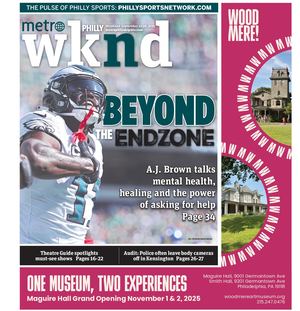 Jeffrey Werbock is possibly the only non-Azerbaijani musician playing mugham.
Jeffrey Werbock is possibly the only non-Azerbaijani musician playing mugham.
For Philly-born musician Jeffrey Werbock, the timing was right when he discovered the traditional music of Azerbaijan in the early 1970s. “Along with the social movement which resulted in the Summer of Love and Woodstock,” Werbock recalls, “there was a minority of musicians and composers who were searching for alternative music to listen to. Some of us had been deeply touched by the idea that there are ancient traditions that we in the western world are somewhat cut off from because of their geographical and cultural isolation.”
George Harrison’s studies with Indian virtuoso Ravi Shankar had opened a bridge between East and West via the music of the Beatles, but there were still countless cultural traditions yet to be discovered in the West. Werbock had first heard of Azerbaijani mugham in an obscure book, a “spiritual travelogue by a mystic philosopher from the Caucasus.” After moving to Los Angeles in 1971, Werbock chanced to meet an elderly musician from Daghestan, as he describes, “by pure luck. Some people feel an element of fate, but I’m cautious about that.”
The encounter was transformative, and has shaped Werbock’s life and career for more than four decades. The old man played the kamancha, a traditional bowed instrument, and Werbock says, “as he drew the bow across the strings I was completely galvanized by the quality of the sound and his way of entering into the music with his whole body. I’d never experienced such a current of musical passion from such minimal notes.”
On Friday night, Werbock will attempt to communicate that same passion to an audience at the Rotunda as he talks about and performs a program of mugham on the kamancha, tar and oud. Most of Werbock’s playing these days is done in the classroom, as in his regular visits to Temple University’s world music program, so this is a rare opportunity to hear the fruits of his studies and frequent visits to Azerbaijan.
Possibly the only non-Azerbaijani musician playing mugham, Werbock is motivated not just by his love of the music but by a desire to preserve a fading tradition. “I was deeply touched by the idea of conservationist thinking about human culture. Conservationists existed in the biological world, but we also confront the loss of human cultures because of the advance of westernization, modernization and globalization.”
Jeffrey Werbock
Sept. 6, 8 p.m.
The Rotunda
4014 Walnut St.
Free (donations appreciated)
www.museumfire.com/events2


























